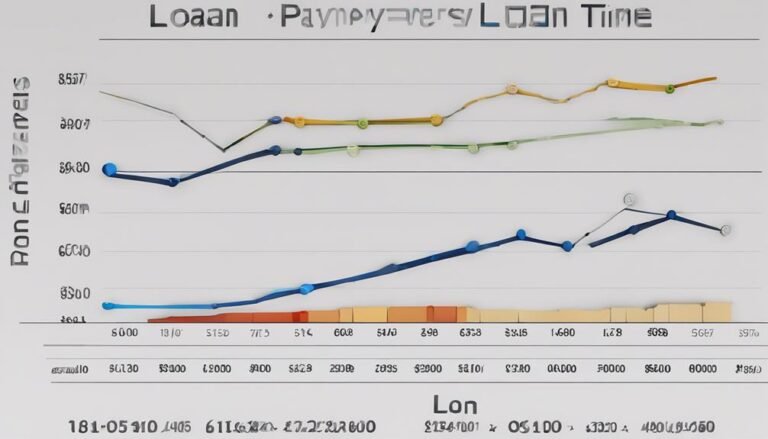Unveiling the Benefits of Flexible Spending Accounts
Flexible Spending Accounts (FSAs) offer tax savings via pre-tax contributions with set IRS limits. Spouses can boost benefits, and withdrawals for medical expenses are tax-free. Coverage spans preventive care, medical equipment, and deductibles. FSAs allow flexibility for unforeseen expenses and serve as emergency funds. 2020 has expanded eligibility, covering COVID-19 costs. Strategic fund allocation is important to maximize benefits, avoid fund forfeiture, and manage healthcare expenses effectively. Understanding the diverse benefits of FSAs can empower individuals to make informed decisions. Explore how FSAs provide tax advantages and coverage for various medical needs to optimize savings.
Key Takeaways
- Tax advantages with pre-tax contributions save money.
- Coverage includes preventive care, medical equipment, and deductibles.
- Flexibility for unexpected expenses and diverse reimbursement options.
- 2020 expansion covers COVID-19 expenses, increasing eligibility.
- Strategic fund allocation maximizes benefits and avoids forfeiting unused funds.
Tax Advantages of FSAs
When considering the benefits of Flexible Spending Accounts (FSAs), the tax advantages they offer stand out as a significant incentive for employees to participate in these employer-established savings arrangements. FSAs provide tax savings by allowing employees to contribute pre-tax dollars, reducing their taxable income. This results in immediate tax savings for participants.
The IRS sets annual contribution limits for FSAs, which can vary each year. Spouses can also contribute to FSAs, maximizing the potential tax benefits for a household. Withdrawals from FSAs for qualified medical expenses are tax-free, providing additional tax savings.
Understanding these tax advantages and contribution limits can help employees make informed decisions when utilizing FSAs for their healthcare expenses.
Coverage for Medical Expenses
Flexible Spending Accounts (FSAs) provide coverage for a wide range of medical expenses, offering employees a tax-efficient way to manage healthcare costs. FSAs typically cover preventive care services and allow for family coverage, enabling employees to use these funds for not only their own medical expenses but also those of their spouses and dependents. Below is a table highlighting some common medical expenses covered by FSAs:
| Category | Covered Expenses |
|---|---|
| Preventive Care | Annual check-ups, vaccinations, screenings |
| Family Coverage | Spouse and dependent medical expenses |
| Medical Equipment | Crutches, blood pressure monitors, diabetic supplies |
| Insurance Deductibles | Healthcare plan deductibles |
This coverage helps employees proactively manage their health and that of their family members while maximizing the benefits of their FSAs.
Flexibility in Fund Usage
With the evolution of healthcare needs and expenses, understanding the diverse ways in which Flexible Spending Accounts (FSAs) can be utilized to manage funds efficiently becomes essential. FSAs provide flexibility in fund usage, allowing for unforeseen medical expenses and serving as emergency funds in times of need.
Additionally, FSAs offer reimbursement options for travel expenses related to medical care, such as mileage, lodging, and meals. This versatility in fund utilization makes FSAs a valuable tool for individuals and families to navigate unexpected healthcare costs effectively.
Increased Eligibility in 2020
Expanding the scope of eligible medical expenses in 2020 has greatly broadened the utility and value proposition of Flexible Spending Accounts (FSAs) for individuals and families managing healthcare costs.
The increased eligibility includes:
- Expanded Coverage: The IRS broadened the range of medical expenses covered by FSAs, enhancing flexibility for account holders.
- COVID-19 Expenses: Costs related to COVID-19, such as tests and protective equipment, are now considered eligible expenses.
- Enhanced Reimbursement: Individuals can now seek reimbursement for a wider array of medical needs, boosting the practicality of FSAs.
- Financial Relief: The inclusion of additional expenses provides financial relief to FSA participants facing unforeseen healthcare costs.
Strategic Fund Allocation
The recent expansion of eligible medical expenses in 2020 has prompted a shift towards strategic fund allocation within Flexible Spending Accounts (FSAs). This change necessitates a more calculated approach to maximizing the benefits of these accounts for healthcare cost management.
Key planning is essential for determining the best amount to contribute to an FSA based on anticipated medical expenses. This approach helps in avoiding the risk of forfeiting unused funds at the end of the plan year. Effective fund management entails considering factors such as potential medical procedures, ongoing treatments, and the inclusion of eligible expenses like COVID-19 tests and protective equipment.
Conclusion
In the intricate tapestry of financial planning, Flexible Spending Accounts emerge as a beacon of cost-saving potential, offering a canvas for individuals to paint their healthcare expenses with strategic precision.
With tax advantages, broad coverage, and increased eligibility, FSAs present a palette of benefits waiting to be explored.
By mastering the art of fund allocation and utilization, individuals can sculpt a path towards financial wellness, shaping a masterpiece of healthcare expenditure management.







